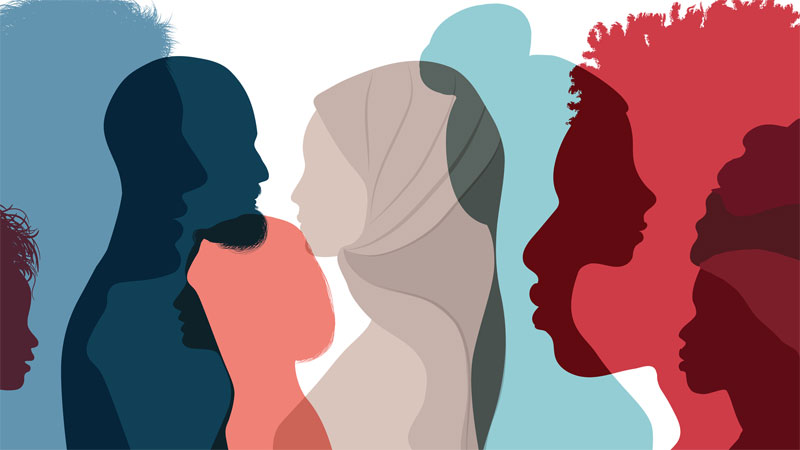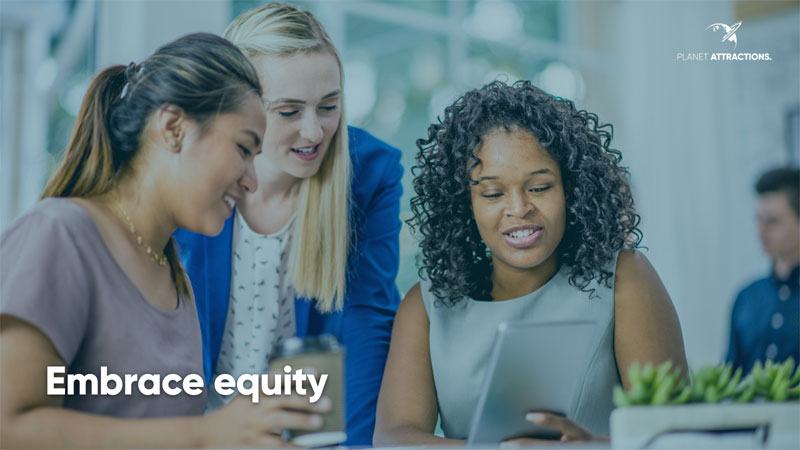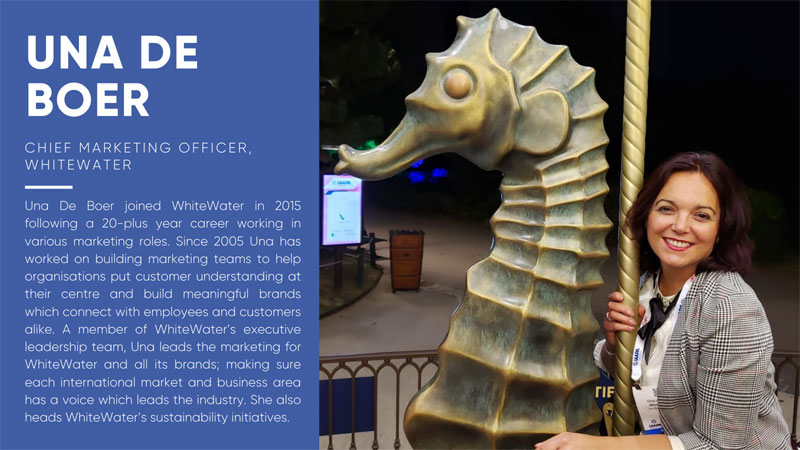|
Equity is different from equality, and on International Women’s Day Una de Boer reflects how to support this foundational step towards a more just world

Una de Boer | WhiteWater | 08 Mar 2023

 The theme of this year’s International Women’s Day is #EmbraceEquity The theme of this year’s International Women’s Day is #EmbraceEquity
Brands beware, as most good marketers know, obsessive attention to the detail is what makes brands great, and every post either builds or erodes brand strength. Diversity optics now matter. I expect the finance company I just saw in my feed thought they were just celebrating the business awards gala they recently attended. But my initial reaction seeing the picture was ‘wow look at all the white men!’ - a perspective I think they may have missed.
I imagine you’ve all seen the like, attending a business event and being one of only a few women there. It struck a chord as we approach International Women’s Day (IWD) because the diversity (in all senses) in the room was shockingly lacking.

This IWD, the theme is #EmbraceEquity. This is not a call for equality where people are treated the same, but for equity where people have the same chances despite having different starting points. There were women being recognised at the awards lunch in question, and clearly, they had achieved equality in recognition alongside their male peers, but the fact that so few women sat at the tables must surely speak to a lack of equity?
I censored myself and chose not to point out the 90% male attendees in a comment on the post. But was I wrong to stay silent? Do we all need to call out more often when we see inequity of gender and race playing out in front of us? If we are going to change our business culture, becoming more inclusive will enable a true meritocracy of talent. But what we see around us influences the stories we tell ourselves, informing what we believe we can achieve. That means we need to create more opportunities for those who don’t have the same access to the advantages which keep those C suite doors closed.
In the words of Sir Michael Cain, let’s “blow the bloody doors off” and maybe some people won’t think that fair, if some opportunities are gated and only for people of different skin colours, or only for women. But looking at how slowly leadership is changing do we need to be more proactive in levelling the playing field?
Franceen Gonzales, WhiteWater’s chief experience officer, recalls being asked early in her career what she thought of affirmative action by a prominent founder of a trust which recognised excellence in for-profit companies. Her response was that she didn’t like it.
As a Latino American woman, she never wanted to feel someone gave her a position because she was a minority or a woman, “that would cheapen my merit,” she said. However, during her career, Franceen has noted that leadership teams can often fall into the trap of picking from their network, by not taking the time to seek out diverse candidates, and not taking time to learn more about those they don't know. The result is a group that is homogenous.
She says: “What matters is to create an opportunity for people to be considered on merit and that the opportunity doesn’t turn into an uphill battle because those selecting are only picking their friends or picking someone who looks like them. I've had to deal with that throughout my life, so that's why I advocate for leaders to seek a diverse pool of candidates and be intentional in seeking people who are high-performing by doing the work of getting to know them.”

That is the challenge this IWD throws out to us, how in our organisations are we creating equity? I’m very fortunate to sit at the leadership table of WhiteWater with two women who garner huge respect, the aforementioned Franceen Gonzales and Joanne Spalton, our chief people officer. At 43%, WhiteWater is well above the norm for female representation at this level (18.3% in Canada in 2021, 26.5% of US Fortune 500 boards, and 29.5% in large public companies in the EU in 2020).
But that is not to say that I think WhiteWater is perfect; we asked our employees in a diversity, equity, and inclusion survey last year how they felt about representation within our company, and it was clear that things do not feel equal to our female or LGBTQ2 employees.
We need to continue to work to create an organisation that feels safer for our people, allows them to feel heard, and fairer in terms of opportunity. I share this stat because I suspect that this is the case in 95%+ of companies and as shown in McKinsey’s Women in the Workplace 2022 study which reported that ‘The broken rung of the ladder’ continues to be the first step. At the first step to manager, only 87 women are being promoted for every 100 men, and even less at 82 for women of colour. We need to address that first step and ensure equity in early career opportunities.
At WhiteWater we believe you can’t control what you can’t measure, so we started with a baseline to track our progress against to ensure we improve. As ever, the context we work within is relevant and as leaders, Joanne’s words guide us: “We need to act to create inclusive environments, where belonging is felt across groups, with team leaders who know how to build psychological safety.”
This means making sure people can see ‘people like them’ in the workplace and that it is OK to challenge the status quo, as I am doing here, without fear of consequences. Then we will see new ideas, creative solutions to problems, and vibrant energy to create change light up our workplaces. Then we’ll start to approach a talent meritocracy, because as Joanne says,
“The table can be expanded, there is more than enough space.”
It is just right to create more equitable work environments, but it is also good business sense because numerous studies have shown the bottom-line business benefits of more diverse leadership. Forbes’ 2022 article The Business Case for Women in Leadership outlines the numerous ways women strengthen business performance.

OK, this all sounds very idealistic. What can you do today to #EmbraceEquity?
1. Be an ally – make it feel safe for a wider variety of voices to be heard, encourage them to speak up, create space for them to gain confidence and experience.
2. Call out inequity when you see it, shame will force the change to happen more quickly.
3. Look around you, identify the ‘norm’ and give someone else a chance – someone who isn’t perfectly qualified, someone different from the norm in the room, and then make sure you listen to them!
So go out there and if you don’t feel empowered to “blow the bloody doors off” at least open a few doors by following these steps. And please, if you can, let’s fix that first broken rung and ensure as many women, especially of colour who are least represented, get that first step into management as men. Then in time, equality will increase, but it needs to start with encouraging equity now.
For practical advice, Mercer offers research and insights on their site and catalyst.org is also full of valuable content.

People
|
|






Storm surge: How Chimelong Spaceship’s award-winning and record-breaking Bermuda Storm was brought to life
|